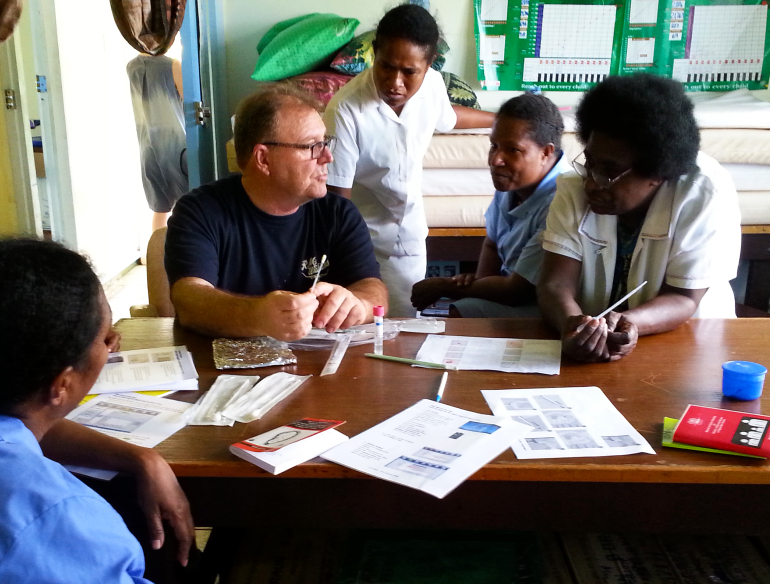Diagnostics are technologies that can test for infectious diseases. Currently, the most common method of testing for infection occurs in a clinic, where a specimen is collected by a doctor or nurse and sent to a laboratory for pathology analysis, with results often taking days to return to the patient. But for many people, particularly those in resource-poor settings, clinics are hours or days away from where they live. This means that infections can go undiagnosed, accelerating poor health for the individual and by extension, the broader community.
But there are a range of new diagnostic technologies and approaches that remove the barrier of time and distance and improve accessibility to testing, and Kirby Institute researchers are leading the way in their delivery, monitoring and evaluation.
Point-of-care testing is a diagnostic test that is offered in a setting that is closer to the patient and has a fast turnaround time. This means that treatment can be offered quickly in the case of a positive result, which can remove the need for multiple trips to the clinic, and ultimately improve treatment uptake.
The Kirby Institute is a national and regional leader in the implementation of this highly effective technology, which is being used to detect STIs and SARS-CoV-2 in regional and remote Aboriginal communities across Australia, and hepatitis C in a range of settings for communities who are at risk.
Other novel diagnostic technologies include self-collection of vaginal samples to detect HIV and cervical cancer-causing human papillomavirus (HPV) for women in Papua New Guinea, where stigma can discourage people from accessing sexual health care.
Our teams work with community leaders, health care workers and government bodies to run programs that are effective and culturally safe. Our surveillance teams collect data to monitor and evaluate the success of these health delivery programs, to identify any barriers to people accessing diagnostics and testing, and inform policy and practice to address these barriers.
Programs working in this area:
- Surveillance and Evaluation Research Program
- Viral Hepatitis Clinical Research Program
- Immunovirology and Pathogenesis Program
- Viral Immunology Systems Program
- Global Health Program
